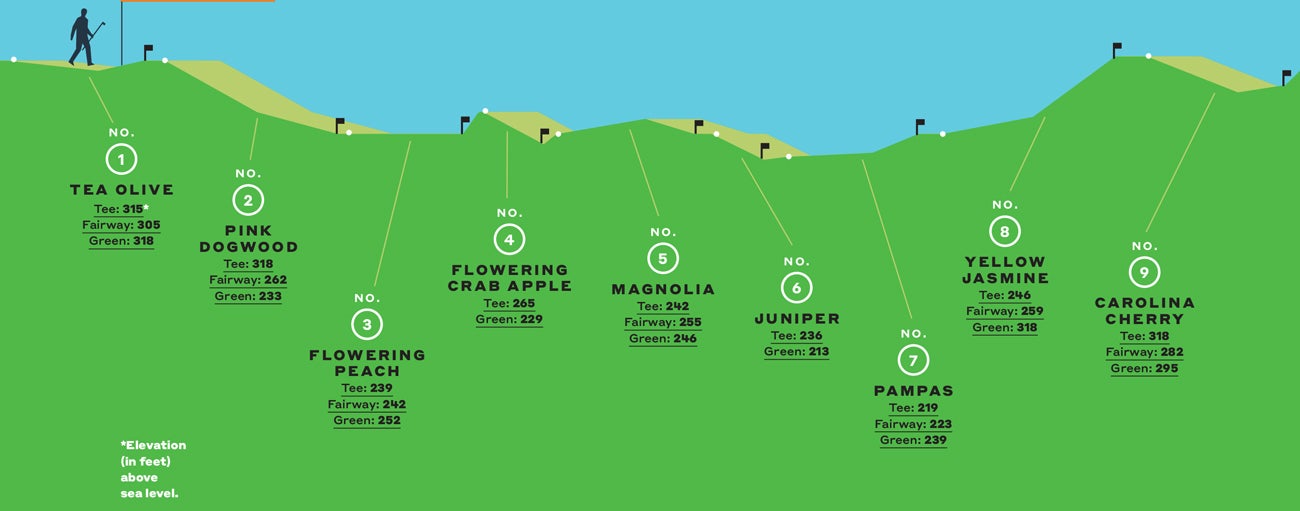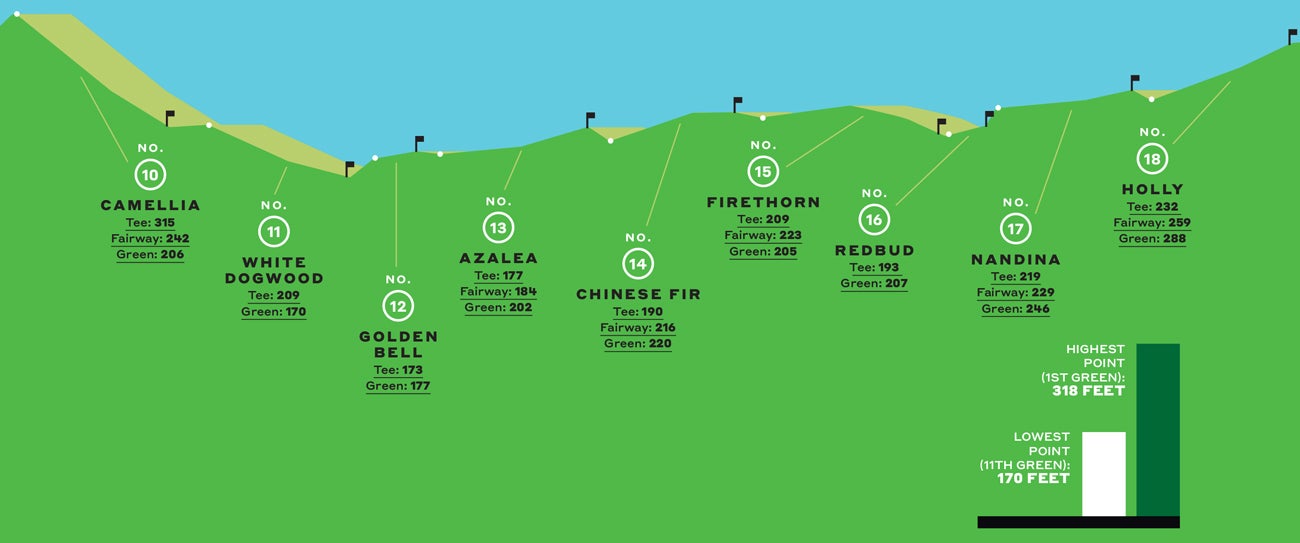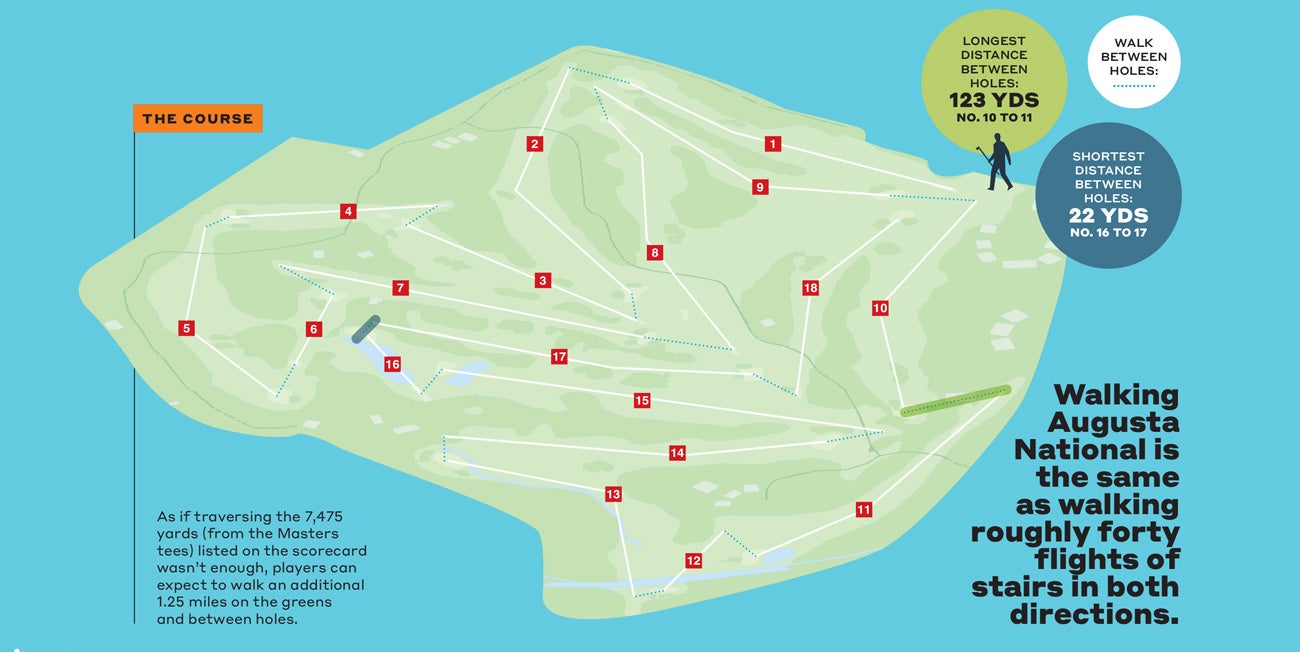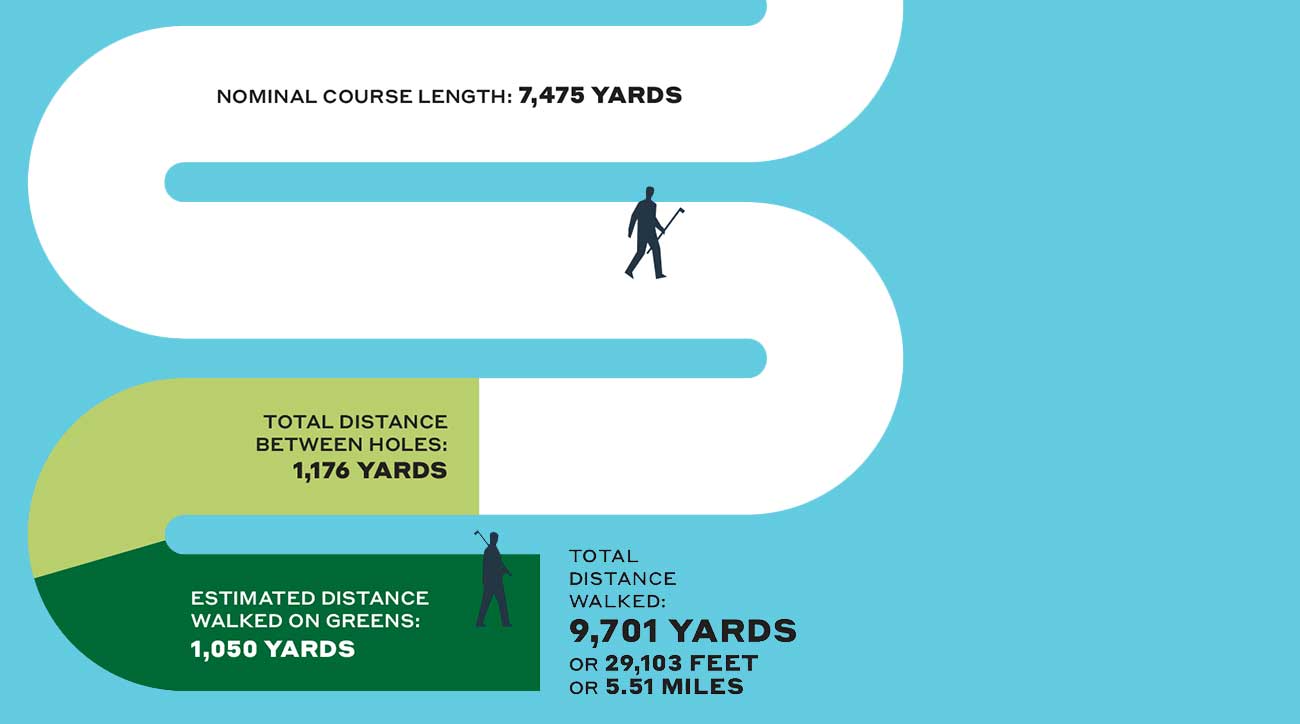Even the harshest critic would be hard-pressed to call a round at Augusta National “a good walk spoiled,” but the truth is, a round at the home of the Masters is definitely a good walk—a good, long walk. If you’ve only ever seen the course on TV, it’s almost impossible to imagine just how hilly and undulating (and we’re not talking about the greens here) the terrain can be.
Combine that with four consecutive days of tough, pressure-packed golf, and it’s easy to see why—at least as far as aerobic exercise is concerned—the Masters is a “tradition unlike any other.” It also highlights just how impressive a Masters win is for players like Jack Nicklaus, Gary Player, Sam Snead, Mark O’Meara and Ben Hogan, all of whom won the tournament in their golf-rickety forties.
Full disclosure: We charted elevation at various points at ANGC using a tool that determines altitude on locations displayed by Google Maps (daftlogic.com). The math used to calculate distances walked beyond the nominal course yardage jibes fairly well with the results from a casual experiment conducted at Royal County Down last year, in which a group of average golfers equipped with tracking devices played the course.
As it turns out, the members of the experiment group walked an average of 6.6 miles, 69 percent farther than the course’s scorecard distance. The pros at Augusta, according to our calculations, can expect to walk only 29 percent farther, which makes sense when you consider the efficiency with which a Tour pro (accompanied by a Tour caddie) plays a round compared with an average weekend golfer.


Of course, this calculation doesn’t take into account the calf-burning climbs that have to be made at various points around the course. The roller coaster begins immediately with the noticeable drop from the first tee to the first fairway, followed by the trek back up to the first green, the highest point on the course. The second hole drops nearly 90 feet from tee to green, while the eighth hole goes in the opposite direction, climbing 72 feet from tee to green.
Players then continue to walk upward to the elevated ninth green and on to the 10th tee, where they stop briefly to don their skis: The dizzying drop from No. 10 tee to the 10th green is about 110 feet. The back nine is somewhat more humane, but still features notable ascents and descents, including the walk up to the 11th tee, the big drop to the green at 15, and the daunting uphill approach on the closer.

The pros can definitely skip leg day during Masters week. And just how many steps can a fitness-conscious Tour pro hope to knock off in each of his (hopefully) four rounds? By our math, we arrived at a health-happy 11,451 steps, which is very close to what 2016 Masters champ Danny Willett logged in his final round, as documented by writer Rex Hoggard.







